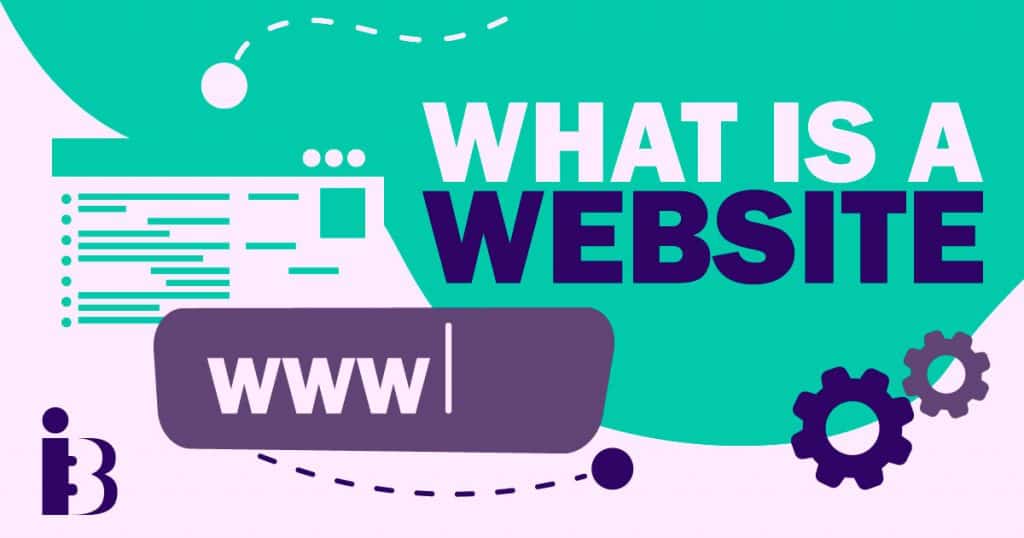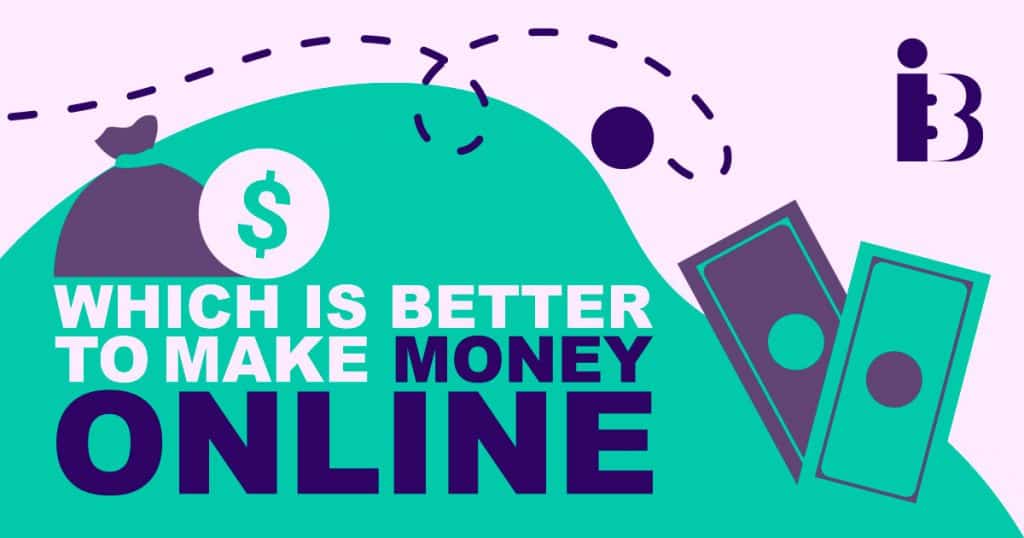Playback speed:
Website vs Blog, what’s the difference, and how do you know which one you actually need?
Blogs and websites have a lot in common. Both are tools designed to give you or your company an “online presence.” They empower you to connect with your audience, showcase products, earn money, and essentially grow your identity on the web.
In a world where around 81% of customers research things online before making a purchase, blogs and websites both give you the opportunity to position yourself within an important stage of the buyer journey. As blogging has become an integral part of running a successful business website, the terms “blog” and “website” have grown increasingly interchangeable over the years.
However, a blog isn’t exactly the same as a website, and vice versa.
So, what is the difference between a blog and a website?
What is a Blog? An Introduction to Blogging
Blogs are one of the most popular “types” of website content produced today. There are around 70 million posts published on WordPress blogs each month, and around 409 million people view 20 billion blog pages on a monthly basis.
The defining feature of a blog is content. On a blog, content is presented in reverse chronological order, which means the newest content appears first, followed by subsequent posts. Blogs are typically run by small groups of people, individuals, and companies.
Blogs are a form of “content marketing”, for many organizations, but they’re also a way of sharing information, as well as educating and entertaining audiences.
The rise of the blog began in 1999, when the company “Blogger” launched, giving individuals an easy way to share content online. However, when WordPress launched in 2003, it transformed the blogging environment. The open-source software gave users a way to manipulate code, combining blog posts with a range of other types of website content.
Today, it’s possible to either run a blog as a standalone content environment or to place a blog within a larger website. Some of the world’s most popular sites, such as Huffington Post, TMZ, Mashable, and Business Insider are all blogs.
What is a Website? Introducing Websites

Websites are more diverse, broad solutions for companies seeking to build an online presence than the average “blog”. While blogs focus exclusively on content, websites can include multimedia content, landing pages, and more, all collated under a single domain. Websites are usually hosted with “web hosting services”, which allow various pages and pieces of content to be accessed anywhere.
Websites are versatile. One key difference between a website and a blog is while blogs are typically used only for content marketing, websites can be used for selling products and services online, displaying information about a business, and even highlighting personal portfolios.
These days, most website building platforms, including WordPress, offer customers the opportunity to embed blogs into their sites. However, it is possible to run a website without having any blog content included at all. It all depends on the kind of site you’re trying to create.
Blog vs Website: The Difference Between a Website and a Blog
How is a blog different from a website? The core difference between a blog and a website is usually its focus.
Blogs are focused on content, while websites can be used for a range of different purposes. With a blog, content is presented in reverse chronological order, using “blog posts”. With a website, you build a static environment where content is organized in pages, and updated less frequently.
Where blogs are dynamic and ever-changing, websites are made up of more consistent pages.
Notably, blogs are technically a “type” of website. You’re still reaching people online with a blog, but you’re concentrating primarily on producing regular, updated content. Blogs can be a part of a larger website, or a website on their own.
Companies around the world now use blogs as a component of their overall site to keep customers up-to-date on product updates, events, and other information. Blogs are also an excellent way for companies to leverage the benefits of “SEO”. With blogs, companies can target specific keywords designed to draw attention from potential consumers.
InBound Blogging is both a blog and a website. We regularly update our content with new pieces for customers to enjoy, but we also have static pages like the “Work with me”, and “Privacy policy” pages.
Website vs Blog: Content Differences
One of the fundamental differences between a blog and a website is the content produced. In terms of content, most websites have “pages”. These are static pieces of content which are rarely updated or changed. For instance, a website might include a home page, a contact page, and an “about us” page.
Blogs are made up primarily of “posts”. These are regularly-updated and dynamic pieces of content intended to highlight specific information. Blogs are frequently updated to target new keywords and phrases and provide customers with new information.
With a WordPress website, you’ll be able to see the two types of content you can publish for both your blog and your website within the dashboard. “Posts” are dated, authored, and linked to your overall blog feed. “Pages” remain consistently the same.
Is It Possible to Have Both a Website and a Blog?
One thing to note about the website vs blog debate, is you don’t really need to choose between one or the other. It’s possible to have both a blog and a website. In fact, most companies and business leaders prefer to take this approach. While your website can provide your customers insights into your business, your products, and other details, your blog can keep users engaged.
In fact, many “CMS” (Content Management System) and website building tools available today support the creation of blogs and websites at the same time. A WordPress site will allow you to organize your site into a series of pages and posts, so you can blog, and promote your company.
Blogs are typically used within a website to share information and news about the company, highlight thought leadership, and strengthen an organization’s position within search engines.
Which Is Better to Make Money Online: Blog or Website?

Whether you should start a blog or a website depends on your goals and the nature of your content. If you’re looking to monetize your online presence, both a blog and a website can help you do that. With a website, you can create an “ecommerce” site, where you can sell physical and digital products, with your own checkout page and payment processing system.
Websites can also help draw attention to your services and offerings if you’re running a business offline or online. For instance, consultants, lawyers, and other professionals can create websites to attract potential buyers and clients.
Blogs offer a multitude of different monetization options. Although originally, these tools started out as “personal journals” for creative individuals, blogs now give people an opportunity to make money through options such as:
Displaying ads: You can showcase ads on your blogs for other companies to make money. For instance, Google Adsense pays a blog or website owner every time a reader clicks on one of the ads displayed on their domain.
Affiliate marketing: Affiliate marketing is another excellent way to make money online with blogging. Affiliates promote a product or service on another company’s behalf and earn a commission every time a customer makes a purchase using a specific link or code.
Memberships and subscriptions: Bloggers can also create “gated content”, or exclusive content that can only be accessed via a membership. This is a great way to make some extra money if you have high-quality content to share.
Bloggers can also sell online courses, or transform their blog into a full website where they sell services, products, and digital downloads.
Why Do People Write Blogs?
In the past, people primarily wrote blogs as a way of sharing information and insights with a wide audience. Today, blogs have evolved from online diaries to a valuable tool for monetization and growth. In the business world, companies create blogs to showcase their experience and “thought leadership”.
They also use blogs as an opportunity to rank higher for specific keywords and phrases their customers might be searching for. When you create a post optimized for a keyword on a blog, it’s indexed by search engines like Google. This means whenever a customer searches for the same term, Google will list your blog in the “search engine results pages”.
Blogs can also attract audiences, help companies build a community for their organization, and unlock new modes of monetization via ads, affiliate marketing, memberships, subscriptions, and more.
Do You Need a Website for Business?
To survive in today’s digital world, companies need an “online presence”. This can be either a website or a blog. But which one is better? 84% of today’s consumers believe websites make companies more credible than a simple social media profile. A good website also gives organizations an excellent opportunity to show off any professional credentials the business might have, along with products and services.
Having a website enhances your credibility, increases your visibility, and opens new doors for lead generation. However, you don’t have to commit to having a website on its own. In fact, adding a blog to your website can be an excellent way to increase your chances of success. Studies show companies with blogs have around 55% more visitors than companies with standard sites.
Not to mention, having a blog has a range of unique benefits to offer organizations and individuals alike. Blogs help with search engine optimization and make it easier for companies and professionals to advertise their services.
If you’re looking to promote a business, then you may need a website with a distinct blog section. If you simply want to share content and monetize your presence with affiliate marketing, ads, and other strategies, then you can start with a blog on its own.
FAQ
How do I start a blog?
To start a blog, you need to choose a blogging platform or content management system (CMS) like WordPress, Blogger, or Tumblr. Then, you’ll need to register a domain name, set up hosting, and customize your blog’s appearance. Finally, start creating and publishing content!
Should I use a blog for my online business?
Absolutely! Incorporating a blog into your online business can be highly beneficial. It allows you to regularly update your website with new content, improve your search engine rankings, showcase your expertise, and engage with your audience. Plus, it can serve as a powerful marketing strategy to attract potential customers and increase brand awareness.
How can I sell on my blog?
If you want to sell products or services on your blog, you can integrate an e-commerce platform like WooCommerce into your blog or website. This will allow you to set up an online store, manage inventory, process payments, and track orders, all within the framework of your blog.



